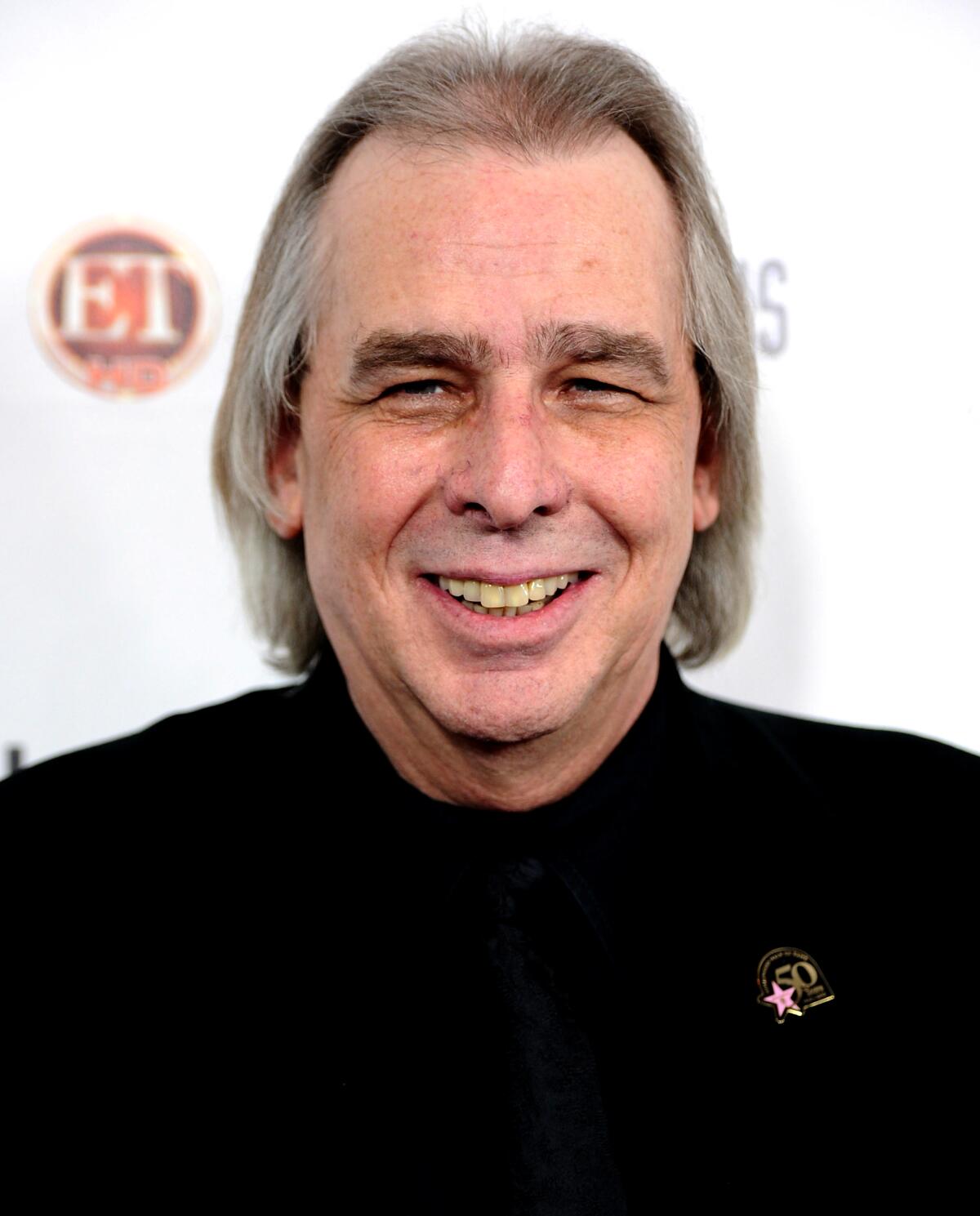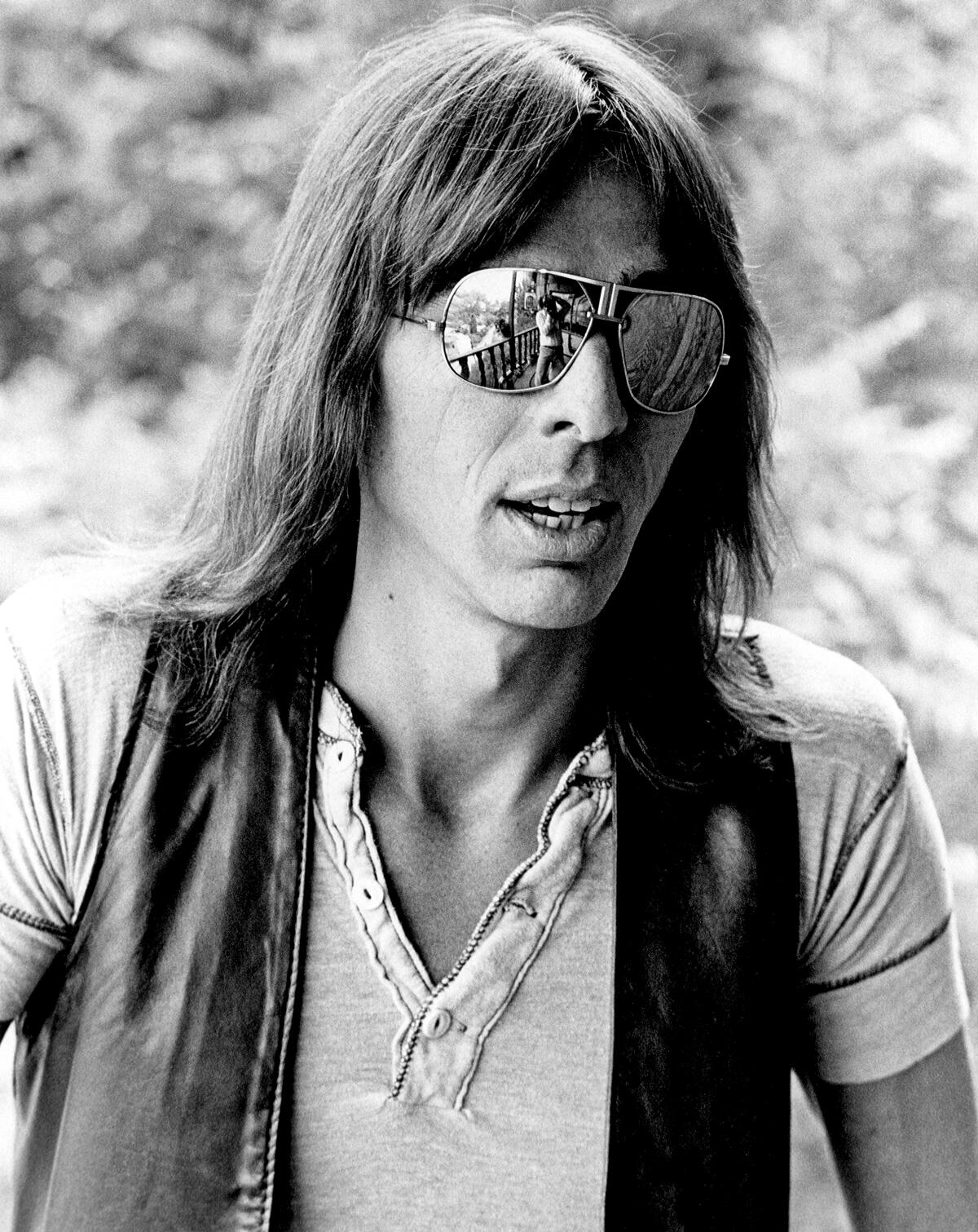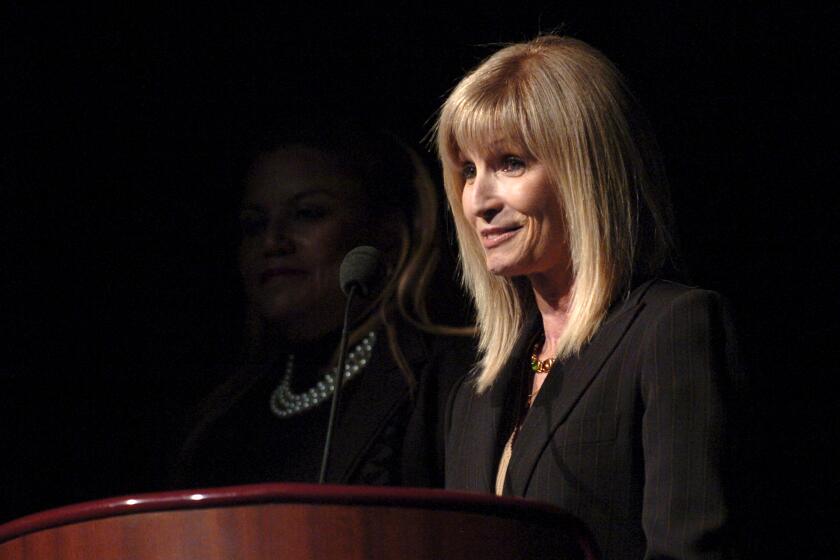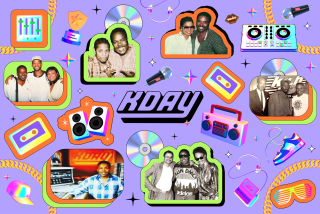Jim Ladd, disc jockey who was a fixture of L.A. rock radio in the 1970s, dies at 75

- Share via
Longtime disc jockey Jim Ladd, a central figure in the emergence of FM rock radio in Los Angeles, died Saturday after a heart attack. He was 75.
Ladd’s death was announced Monday by Meg Griffin, an on-air colleague at SiriusXM, where they both worked on the satellite radio service’s rock channels. Ladd had a shift on SiriusXM’s Deep Tracks channel, which features the album-oriented rock he played over his long career.
“He never stopped caring,” Griffin said after telling listeners that Ladd died at his home near Carmichael, Calif., with his wife, Helene Hodge-Ladd, by his side. “He delivered the truth. He lived for the music, and I am blessed to have worked with him.”
Ladd, who had been part of the SiriusXM line-up since 2011, was a favorite personality during the rise of rock radio on the FM band in the 1970s, working at Los Angeles stations KMET and KLOS.
The longtime Laurel Canyon resident reveled in the stories of the freewheeling days of free-form rock formats on FM, made possible after the FCC ruled in 1964 that large-market AM stations could not duplicate more than 50% of their programming on an FM outlet.
Turner, known as “The Burner,” was one of the most listened-to DJs in the country in the ‘70s and ‘80s, through L.A.’s KMET-FM and syndicated programming.
The rule led to new stations that capitalized on a creative surge in rock and pop music that emphasized albums over the hit singles played on the top-40 outlets that proliferated on the AM band.
Ladd epitomized the free-form rock format, using his sonorous voice and laid-back delivery to share his intimate knowledge of the music — and strong opinions on other issues — with listeners as if they were friends. He became a staple of the rock radio scene at station KMET alongside other favorites of the era, including Mary Turner, Jeff Gonzer, Pat “Paraquat” Kelley and Cynthia Fox.
Ladd also had a national profile while at KMET, hosting a syndicated series called “Innerview” that aired on more than 160 stations between 1974 and 1986. Major stars, including John Lennon, Pink Floyd, U2, Joni Mitchell, the Eagles and Led Zeppelin, came on to discuss their work with him.
KMET had become a commercial success by the end of the 1970s, as album rock hit its zenith in popularity, and by 1980 ranked as the second-most listened to station in the Los Angeles market. But it steadily lost audience in the mid-1980s, which staff blamed on a series of program directors and a tightened music playlist.
Ladd was part of the air staff that was fired when owner Metromedia dumped the rock format for smooth jazz in 1987.
“To us, rock and roll ain’t a show,” Ladd told The Times after the format change. “It’s life.”
Ladd’s 1991 memoir, “Radio Waves: Life and Revolution on the FM Dial,” recounts how air shifts in the early days of those new FM outlets were often conducted through a haze of marijuana smoke.
Ladd also noted how the rebellious politics of the time — mainly youthful opposition to the Vietnam War — informed the musical choices on FM. Thematic sets — for example, “Universal Soldier” by Donovan, followed by the Doors’ “Unknown Soldier” and Lennon’s “I Don’t Want to Be a Soldier” — were common.
“It was this approach to radio that made FM different from Top 40 and threatening to the powers that be,” Ladd wrote. “It was our role in the great passion play that engulfed the late sixties and early seventies… the music, the message, and the medium all combined to resonate the tribal drum, which kept time for a syncopated movement of new ideas and innocent dreams.”
Ladd later chafed at the increased commercialization of FM radio as it overtook the AM band as the primary source of music programming for radio listeners. He outwardly expressed disdain for management and consultants who favored more restricted playlists.
“I spent 20 years being called on the general manager’s carpet for speaking my beliefs,” Ladd told The Times in a 1991 interview.

Ladd’s devotion to the music earned him an invitation from Pink Floyd’s Roger Waters to be a part of his 1987 album “Radio K.A.O.S.” Ladd played himself as a rebel disc jockey on the recording. He also traveled with Waters on the album’s world tour and starred in all three of its MTV music videos.
Ladd started his career in Los Angeles radio at KLOS and returned there in 1997. He remained there until 2011 when he joined SiriusXM.
“He was able to survive on the air in L.A. and then on SiriusXM long past many of his on air contemporaries whose unique careers succumbed to the radio management philosophy of ‘shut up and play the records,’” said Michael Harrison, the editor of the radio business publication Talkers who worked with Ladd at KMET.
Ladd was also the inspiration for rocker Tom Petty’s 2002 song “The Last DJ,” which depicted a disc jockey who stood up to radio station management. (“Well the top brass don’t like him talking so much / And he won’t play what they say to play...”)
“It’s really a love song about radio,” Ladd said in an interview after its release. “Some people totally misinterpreted the song as an attack on radio when it is exactly the opposite.”
Ladd was a well-liked figure among artists, interviewing many of the top acts in the album-rock genre over his career. Several posted tributes on social media after learning of his death.
“‘The Last DJ’ has crossed the tracks,” wrote John Densmore, drummer for the Doors. “There wasn’t a more soulful spinner of music. The songs he played were running through his blood, he cared so much for rock n’ roll. Irreplaceable… a very sad day, which can only be handled by carrying his spirit forward.”
More to Read
The biggest entertainment stories
Get our big stories about Hollywood, film, television, music, arts, culture and more right in your inbox as soon as they publish.
You may occasionally receive promotional content from the Los Angeles Times.












